China Partnerships
Our Collaborations in China
The School of Biomedical Engineering, Science and Health Systems has formed an academic alliance with Shanghai Jiao Tong University (SJTU) to create an exchange of faculty research. We invite all students to take part in this initiative, as outlined here on this page.
- Graduate Program Integration – Dual PhD degree program with Med-X Institute of Shanghai Jiao Tong University: Neuroengineering, Tissue Engineering, Regenerative Medicine, and Biomedical Imaging
- Joint Research Initiatives
- Joint Theses Advising
- Joint Faculty Positions
- Joint Technology Commercialization
- Joint Research Partners – SIAT Institute of Biomedical and Health Engineering under the Chinese Academy of Sciences in Shenzhen.
- Corporate Partners – Graduate Co-op Education with Carestream Health Inc.
Inaugural Biotechnology in China course (Intensive Course Abroad)
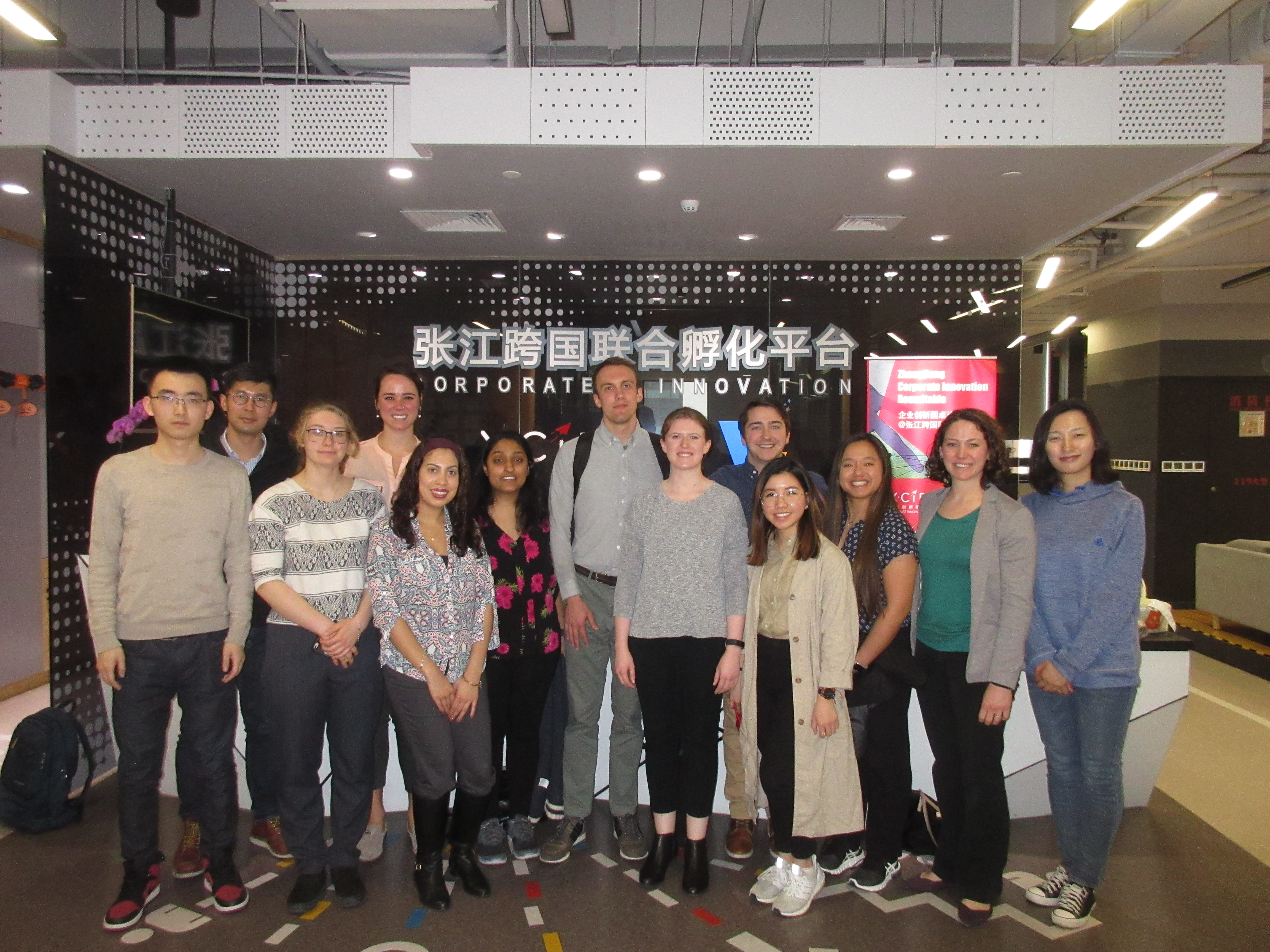
Inspired by Dr. Kara Spiller’s collaboration with the lab of Dr. Anthony Lowman in Shanghai, China, Dr. Spiller launched the first Intensive Course Abroad entitled Biotechnology in 2019 in China. This one-week intensive course abroad offers students the opportunity to become immersed in biomedical engineering in China through visits to universities, start-up companies, and large biotechnology companies in Shanghai. Students will also learn about the culture of biomedical engineering in China through interactions with Chinese students. Through field trips and follow-up research projects, students will be introduced to the policies and practices in China surrounding biomedical engineering with respect to the following areas:
- Basic research
- Translational research
- Entrepreneurship
- Regulatory pathways
- R&D in large pharmaceutical companies
Learning Objectives:
- Understand the current state of biomedical engineering research and development in China
- Understand the similarities and differences between Chinese and American medical device regulation
- Become familiar with how Chinese culture influences biomedical engineering research, both basic and translational
- Become familiar with how Chinese culture influences biomedical engineering companies, from start-ups to large corporations
The next time this course will run is in Spring 2022.
Our Current Collaborations with Shanghai Jiao Tong University
Dr. Kara Spiller established a collaboration with Dr. Wei Liu at the Shanghai Key Tissue Engineering Laboratory in the 9th People’s Hospital, affiliated with SJTU, as a graduate student at Drexel in 2008. From that work, they published a paper titled “A novel method for the direct fabrication of growth factor-loaded microspheres within porous nondegradable hydrogels: Controlled release for cartilage tissue engineering”
The team has continued to collaborate, facilitated by a seed grant from the Burroughs Wellcome Fund to Dr. Spiller in 2013 and by student research exchanges. Tony Yu, a Drexel Biomed BS/MS student, won a Whitaker fellowship to conduct research in the Shanghai Key Tissue Engineering Laboratory in 2013, which led to publication entitled, “Temporal and spatial distribution of macrophage phenotype markers in the foreign body response to glutaraldehyde-crosslinked gelatin hydrogels.”
More recently, an MD/PhD student from the Shanghai lab, Dong Li, visited Dr. Spiller’s laboratory at Drexel for 6 months in 2019, working on a strategy to increase therapeutic revascularization of ischemic tissue.
Learn More
Exploring Research Collaborations Through Joint Seminars Series with ShanghaiTech University

The joint Cell and Immune Engineering seminars are part of the Biomed Seminars presented weekly by the School of Biomedical Engineering, Science and Health Systems, Drexel University (BMES 684). The series provides students on both campuses the opportunity to explore recent advances in cell and immune engineering and to initiate collaborative research/education opportunities between Drexel University and ShanghaiTech University.
Learning Objectives:
- Exposure to cell and immune engineering research at partner universities
- Opportunities to participate in international research collaborations.
- Participation in joint Webinars and discussions
Learn More
Visiting students from Shanghai Jiao Tong
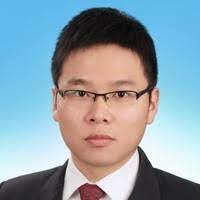
Lin Cheng is pursuing his PhD at Drexel and Shanghai Jiao Tong University through the Dual degree program. His thesis focuses on the Dynamic Adaptation of Brain Networks from Rest to Motor Task and Application to Stroke Research examining how motor task modulates brain activity plays a critical role of understanding how cerebral motor system works and could further be applied in the research of motor disability due to neurological diseases.
Drexel Student in China
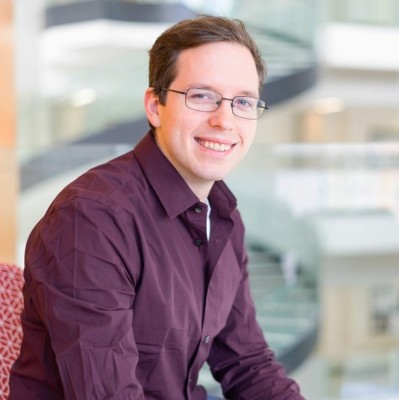
Adrian Curtin is a strong research professional with dual Doctor of Philosophy (Ph.D.) in Biomedical Engineering from Shanghai Jiao Tong University and Drexel University. His thesis is focused on applying neuroimaging to characterize cognitive function in mental health patients and monitor their response to pharmaceutical and non-pharmaceutical interventions. Specifically, he is focused on Schizophrenia and evaluated new brain-based indices and their link to assess treatment efficacy.
International students from China
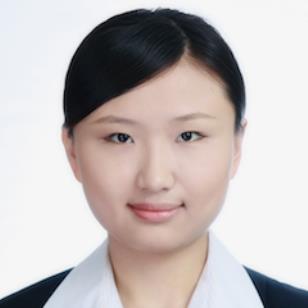
Lei Wang earned a PhD in Biomedical Engineering from Drexel University, and an MS and BS in Biomedical Engineering from Shanghai Jiao Tong University. Dr. Lei Wang is now an Assistant Teaching Professor in the Department of Information Science at Drexel's College of Computing & Informatics. Prior to Drexel CCI, she served as a research assistant on multiple biomedical data science projects at Drexel CONQUER Collaborative, including partnership with the Children’s Hospital of Philadelphia to evaluate cognitive workload following pediatric concussion. Her research and teaching interests center around machine learning, deep learning, data science, healthy informatics, neuroimaging and text mining.
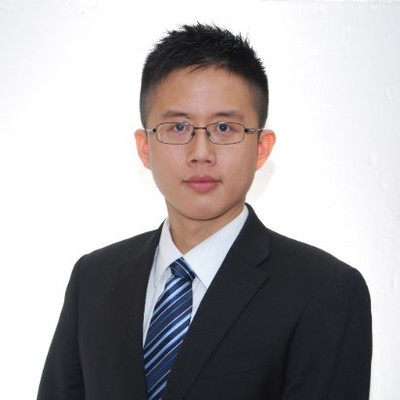
Yichuan Liu completed his PhD in Biomedical Engineering at Drexel University. He received his Bachelor of Engineering from Harbin Institute of Technology in China and Master's degree in Electrical Engineering from Boston University. Dr. Liu’s PhD thesis focused on mental workload classification combining EEG, fNIRS and physiological measures. After the completion of his thesis, he started Postdoctoral studies at Harvard Medical School - Massachusetts General Hospital.